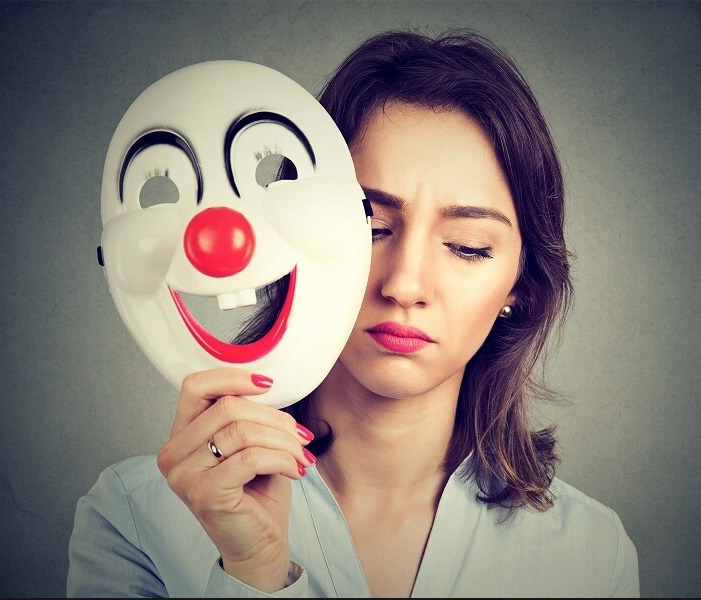
The Carnival of Mental Health
Share
Imagine mental health issues as a trip to a carnival. From the outside, it looks like all fun rides, cotton candy, and non-terrifying clowns. But just like a carnival clown's makeup, people with mental health struggles often wear a mask to get through the day. This mask helps us pretend that everything is just fine, even if on the inside it feels more like riding a roller coaster operated by an overly caffeinated monkey.
In public, we wear this mask to convince everyone we're fine. It's like dressing up for a costume party where everyone else is a fairy or a superhero, and we're just trying to be "Normal Person #3." We laugh, smile, engage in small talk about the weather, and nobody suspects the internal battle between the brain and the out-of-control carousel of racing thoughts.
But let's take a detour from the mental merry-go-round and head into the haunted house. Ah yes, the delightful part of the carnival that's supposed to be thrilling but ends with us feeling like we've had a mild stroke and run for our lives. This is where the true feelings reside – the fear, the sadness, the stress. It's like having a haunted house inside our brain, complete with creaky doors, creepy dolls, and that one scary clown who jumps out just when we think we're safe. Exit stage left, the workday is over, and it's time to go home.
We get home to our safe space, finally taking off that mask. We flop onto the couch searching for comfort, binge-watch a series, or eat an entire tub of ice cream without worrying about being judged. This is where the real us comes out, the one who doesn't have to keep up appearances. It's like taking off an itchy superhero costume after a long day of trying to save the world and finally being able to relax in your PJs.
Now, why do we hide behind this "normal" mask? The primary reason is fear. Fear that if people knew what was really going on in our heads, they'd judge us. Nobody wants to be the person at the office known as the "circus freak" or "the one with issues." We're worried that revealing our struggles might lead to awkward conversations, loss of friendships, or even job loss. After all, it's hard enough to get a promotion without adding "frequently cries in the supply closet" to your resume.
The fear of judgment is real because mental health stigma is still a thing, and it is wrong and unhelpful. Society often expects us to be perfect little performers. Admitting that we are struggling can feel like telling everyone we forgot how to eat. Plus, there's the worry that people might start treating us differently, like we're fragile or unreliable. And nobody wants to be the office "project" who's treated like the bearded lady with two heads. We want to be treated like everyone else.
Another reason we keep the mask on is that mental health issues can be invisible to the naked eye. People are so busy watching the smoke and mirrors they can't see behind the mask. They assume we're fine because we're functioning – showing up to work, laughing at jokes, not sobbing uncontrollably in public (most of the time). The mask can delay getting the help we need because nobody knows we need it.
Ironically, the mask can also prevent us from seeking help. If nobody knows there's a problem, nobody can offer support. It's like being stationary in a bumper car waiting to be slammed into but telling everyone, "I'll be safe just sitting here." If we let the mask slip, we might get the assistance and understanding we need sooner. Friends, family, and colleagues might offer a lifeline instead of assuming we're doing just fine.
Sometimes, we even fool ourselves with this mask. Denial is a powerful tool. Admitting there's a problem means confronting it, which can be scarier than any haunted house. It's easier to pretend everything's okay and hope that, by some miracle, it will be. Plus, understanding our own mental health can be confusing. It's like trying to navigate a funhouse with warped mirrors and floors that tilt – everything feels distorted and disorienting.
So, remember that it's okay to take the mask off and ask for help – even if it feels like admitting we're scared of clowns. Because, let's face it, clowns are terrifying.
